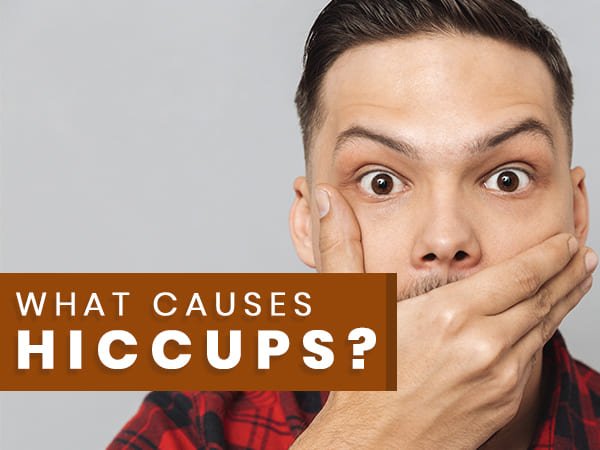Causes of hiccups: Hiccups are involuntary contractions of the diaphragm muscle followed by the rapid closure of the vocal cords. This results in the characteristic sound and sensation known as hiccups. While hiccups are usually harmless and temporary they can occasionally persist for extended periods and become an annoyance or even a health concern.
Read this also: Embracing a Vegan Diet: A Path to Sustainable Health, Environmental Stewardship, and Compassion
Know the causes of hiccups
1. Eating or drinking too quickly: One of the most common causes of hiccups is rapid consumption of food or beverages. This can lead to the stomach becoming distended triggering irritation of the diaphragm and subsequent hiccups.
2. Swallowing air: When we swallow air excessively it can accumulate in the stomach and contribute to hiccups. Habits like eating or drinking too quickly chewing gum smoking or drinking carbonated beverages can all lead to swallowing excess air.
3. Eating spicy or hot foods: Spicy or hot foods can cause irritation to the nerves in the stomach or esophagus leading to hiccups as a reflex response.
4. Drinking alcohol: Consuming alcoholic beverages can lead to hiccups due to the irritative effect alcohol has on the nerves and muscles that control breathing.
5. Emotional factors: Emotional excitement or stress can trigger hiccups. This may be related to the influence that emotions can have on the autonomic nervous system which controls involuntary bodily processes.
6. Changes in temperature: Sudden changes in temperature especially exposure to cold air or cold drinks can stimulate the phrenic nerves that control the diaphragm and inadvertently trigger hiccups.
7. Gastrointestinal conditions: Certain gastrointestinal issues such as acid reflux gastritis or swallowing disorders can irritate the nerves involved in the hiccup reflex and lead to persistent hiccups.
8. Nerve irritation or damage: Any irritation or inflammation of the nerves that control the diaphragm such as those caused by tumors infections or injuries can result in chronic hiccups.
9. Medications: Hiccups can be a side effect of certain medications including some tranquilizers sedatives steroids or medications used to treat acid reflux and nausea.
10. Underlying medical conditions: In rare cases chronic hiccups can be a symptom of an underlying medical condition such as brain damage stroke multiple sclerosis or certain metabolic disorders.
While most cases of hiccups resolve on their own within a short period persistent or chronic hiccups should be evaluated by a healthcare professional. Treatment options may include medications nerve blocks or other interventions aimed at addressing the underlying cause. It is essential to rule out any serious underlying conditions when hiccups become chronic or interfere with daily life.
Hiccups can be caused by a variety of factors ranging from harmless lifestyle habits to underlying medical conditions. Understanding the potential causes can help individuals manage and prevent hiccups and seek appropriate medical attention if necessary.



